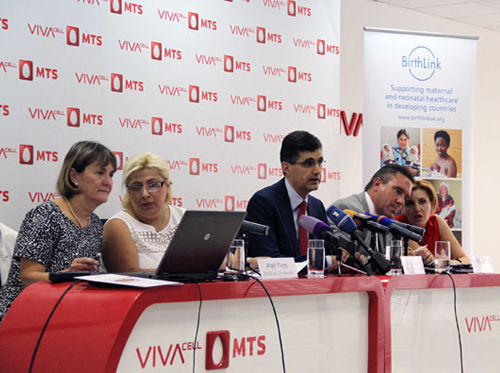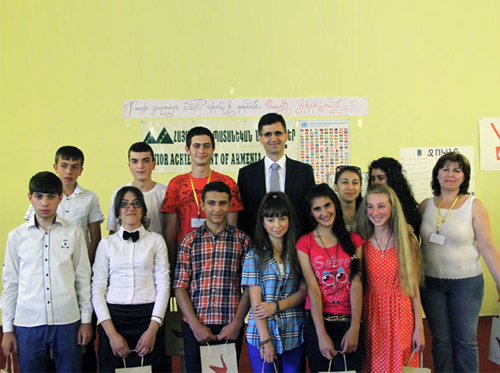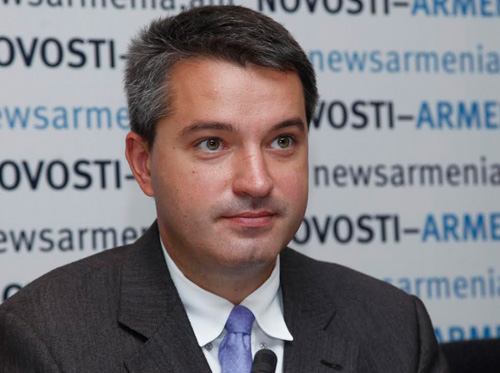13:31 | 25.07.14 | News | 4097
Report of the VivaCell-MTS and BirthLink joint project on improving neonatal care in Armenia was presented
During a joint press conference VivaCell-MTS General Manager Ralph Yirikian and Director of BirthLink Kathy Mellor presented the report of the co-operation aimed at improving the care of sick and premature babies, and thereby reducing neonatal mortality rate in Armenia.
The project commenced in 2008, and supported eleven neonatal departments in Yerevan and twenty-three departments in seven regions of Armenia, and will continue in 2014 as well and will include nine hospitals in Armavir, Ararat, Kotayk, Aragats and Syunik regions. From 2008 to 2014 VivaCell-MTS has donated about AMD 535 million for the implementation of the project.
“Cooperation with BirthLink is an example of a sustainable project, the results of which can be seen in a long term. If you are persistent and patient enough, you can see the results of your contribution, and this is when you understand once more that you shouldn’t give up if there is a problem. Neonatal mortality is a real threat worldwide, and Armenia is not an exception. One cannot just watch knowing that it is possible to save the lives of many babies, who die just because of lack of equipment or access to professional treatment. So we joined hands with BirthLink and made a choice to fight for the life of each newborn in Armenia”, commented VivaCell-MTS General Manager Ralph Yirikian.
The main causes of death after birth are prematurity, infection and birth asphyxia. With better care many deaths from these causes are preventable, so due to the project the neonatal departments and hospitals were provided with essential equipment for safely managing a sick or premature baby following delivery. This included infant warming devices, equipment for delivering small volumes of intravenous fluid, non-invasive respiratory support systems and oxygen monitoring. This has enabled any regional unit to stabilize a baby and care safely and appropriately in the first twenty-four hours. Such babies need good immediate care to prevent complications and long-term morbidity, before being transferred to a tertiary unit in Yerevan for ongoing care.

17:29 | 24.09.25 | Articles
Jacopo Losso on Cross-Border Investments and Why Armenia Attracts Angels









